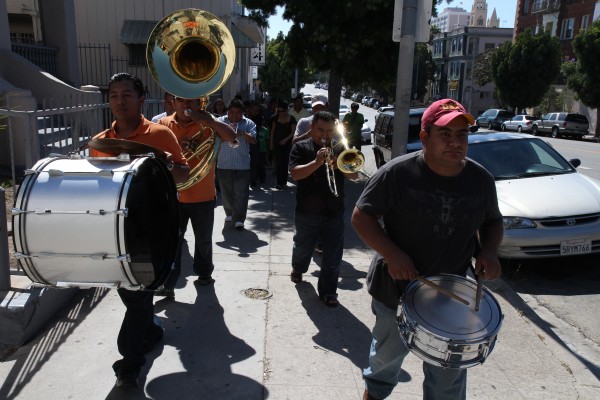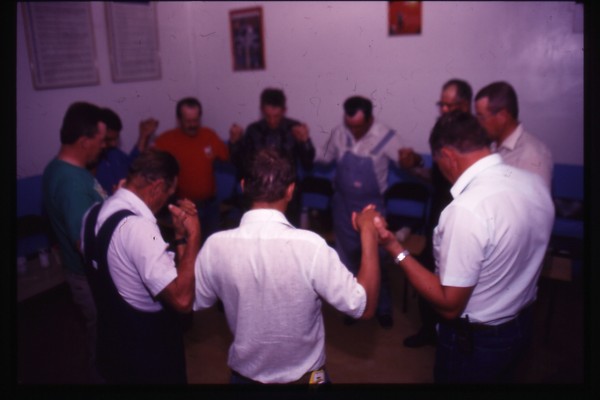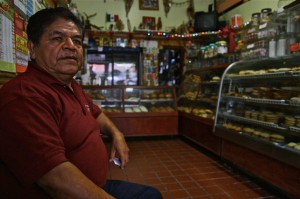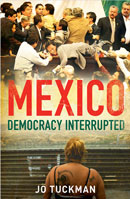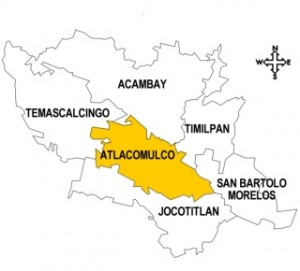
Twelve years after peacefully voting out in a clean election the party that had ruled it as a political monopoly for seven decades, Mexicans returned the Institutional Revolutionary Party (PRI) to power the same way, with not only a president but what appears to be a majority in Congress (NB: It now appears the PRI will not have a congressional majority).
Enrique Pena Nieto won with an eight-point majority Sunday that was comfortable though much smaller than polls were indicating. The PRI also won governors’ posts in Jalisco, Hidalgo and Chiapas.
Pena Nieto takes office on December 1. Not many appear to know what he’ll do as president. (I’ll be discussing the elections this morning at 11:20 a.m. on KPCC –89.3- with host Larry Mantle and Mexicanist Andrew Selee. Here’s what Andrew Selee had to say about the election.)
EPN’s background, though, wouldn’t seem encouraging to anyone interested in the continuation of democratic reform in Mexico.
He is from Atlacomulco, a fascinating little town in the State of Mexico, the horseshoe-shaped state surrounding Mexico City that is its largest in population. (Five of Mexico’s largest cities are suburbs to Mexico City in the state of Mexico: Tlanepantla, Ecatepec, Naucalpan, Chimalhuacan, and Nezahualcoyotl.)
Some half dozen of the state’s governors have come from little Atlacomulco. The Grupo Atlacomulco is a kind of political clan. Its hallmarks through the decades of PRI hegemony were a combination of laissez-faire, some would say crony, capitalism combined with political authoritarianism and personal enrichment while in office.
In time, even the governors of the state who weren’t actually from Atlacomulco bought into the clan’s governing ideology of taking what you can get while you have the chance. One of its standard bearers, Carlos Hank Gonzalez, came up with the phrase, “Un politico pobre es un pobre politico” – a politician who is poor is a poor politician.
Hank was one of Mexico’s richest men when he died, without having spent a day working in the private sector.
His saying seemed PRI ideology, together with the preservation of its own power, for its decades as Mexico’s political monopoly.
Pena Nieto is the first from Atlacomulco to become president.
A lot has changed in Mexico that will prevent that PRI monopoly from reconstituting. There are political actors today who will counter-balance the PRI’s power. Political institutions such as the Federal Electoral Institute are no longer part of the PRI. The media is more independent.
The left seems recharged. The Yo Soy 132 movement, resembling the Occupy movement here last fall, seems at the moment to have a lot of energy, and made Pena Nieto its target.
However, EPN would appear beholden to the two television networks (Televisa and Azteca), who seem, from reporting, to have created his candidacy from nothing, and pushed it even though he seemed a candidate with severe personal drawbacks.
What of the major reforms to education, energy, labor law, and on so, that the most agree the country needs and were blocked, largely by PRI congressmen, during the years the center-right PAN had the presidency? The PRI now has the presidency and the Congress – so it can push these reforms if it wishes. Will it?
During its years of hegemony, the PRI-government made deals with drug traffickers, facilitating the trade. This is one reason small groups of narco-hillbillies over the years developed into the menacing, well-armed, bold cartels that today threaten the country’s national security.
What will EPN do? He hasn’t said.
I’m interested to see whether a party that formed without ideology can now shape one. What exactly does a Priista believe? What compass guides him? I can’t tell you. After all, this is a party that nationalized banks, then privatized them a decade later.
In the past, the party’s philosophy nationally was most brazenly expressed and practiced by the Grupo Atlacomulco in the state of Mexico.
He has said he won’t return to that past, that he’ll govern responsibly, democratically.
But will a man who comes from a political culture that is used to participating in the lucre of politics have what it takes to stand up to these forces?
I really don’t know.

